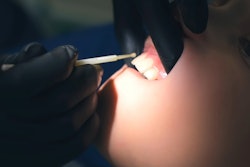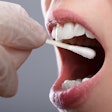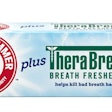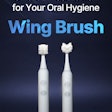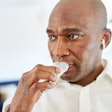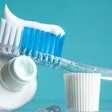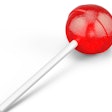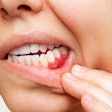
Many mothers of preschoolers in the U.S. reported that dentists were not giving them enough toothbrushing guidance for their children, according to a study recently published in the Journal of the American Dental Association.
Better caries prevention may lie in better communicating to caregivers how and when they should help their children brush their teeth, the authors wrote.
"Understanding the factors that influence how parents brush their children's teeth and the information they receive to guide daily dental hygiene behavior for children is essential in developing effective interventions for preventing caries in children," wrote the authors, led by Emyli Peralta of the University of Pittsburg School of Dental Medicine (JADA, May 20, 2024).
As part of the Center for Oral Health Research in Appalachia study, which was conducted from 2018 to 2022, a cross-sectional qualitative study was conducted to explore how mothers perceive assisting their children with toothbrushing.
A total of 301 mothers of children ages 3 to 5 living in West Virginia (n = 156) and Pittsburgh (n = 145) were interviewed. The mothers were asked open-ended questions about their experiences and perceptions about assisting their children with toothbrushing.
First, mothers described their involvement in their children's toothbrushing routines. They cited concerns about the quality of independent brushing, uncertainty about whether the child would brush effectively without help, and perceptions of their child's ability to brush effectively independently, the study's authors wrote.
Additionally, the mothers' reasons for ceasing to assist their children with oral hygiene routines included feeling that their children were capable of brushing independently and changes in their kids' dental health status.
Furthermore, some caregivers expressed their desire that dentists offer more advice about children's toothbrushing routines. The mothers reported that they had been made aware of when to start taking their kids to the dentist and the importance of brushing and flossing but not how to best brush their toddlers' teeth, the authors wrote.
Most importantly, mothers who received professional recommendations about children's toothbrushing practices described how they implemented the recommendations into their routines and effectively communicated these changes to their children. This theme underscored the importance of guidance from dental professionals in shaping mothers' practices and perceptions regarding their children's toothbrushing routines, they wrote.
However, the study had limitations. The results focused solely on mothers' perceptions about child toothbrushing.
More research is necessary to explore aspects such as the quality of child toothbrushing and the potential benefits of fluoride in toothpaste, the authors wrote.
"These insights can improve child toothbrushing quality through improved oral hygiene education, recommendations, terminology, and policies from the dental community," Peralta and colleagues wrote.







